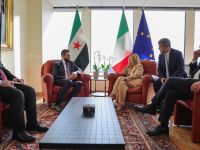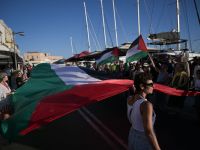The Saudi Arabian Supreme Economic Council announced on 12 February that it had finalized the country’s “negative list,” which delineates those economic sectors off limits to 100 percent foreign ownership. The list includes 19 sectors comprising oil exploration, drilling and production, insurance, real estate, investment in the holy cities of Mecca and Medina, telecommunications, fishing, education, sea transport, air transport, pipelines, space projects, services and projects related to the Hajj (Muslim pilgrimage), television, radio, electricity distribution, health services, wholesale and retail trade, defense related industries, security and publishing.
Some local analysts have commented positively. Bishr Bakhit of the Saudi-based Bakhit Financial Advisers was quoted in the press on 13 February as saying it was “an incredible achievement.” He explained that while for someone unfamiliar with the country it might seem less than satisfactory, “if you are a Saudi watcher, you will see it as a successful achievement. A Saudi cannot invest in telecoms or education yet. They can’t allow foreigners before the Saudis.” Ihsan Buhaliqah, an economic analyst and member of the Saudi Shura Council quoted in the Arabic daily Asharq al-Awsat on 12 February, said that the list is only provisional anyway and will inevitably be reduced due to pressures such as WTO accession.
The advisor to the head of the Saudi Arabian General Investment Authority (SAGIA), Mujahid al-Gain, stressed to MEES that the aim was to make the list “as far-reaching as possible,” without “falling into the trap of opening a sector and then later on realizing it should have remained closed. We want to be as careful as possible.” Many government agencies were invited to comment on the list, but Mr Gain said that broadly speaking the final list would be based on WTO accession criteria, which are a key issue of economic policy at present. “In general, what we are adopting right now is really the government position on the WTO, with the promise that we will try to open up sector after sector where we feel it is appropriate or where the private sector calls on us to do so,” Mr Gain told MEES, pointing out that the list will be reviewed annually. “It is a continuous improvement process,” he said.
Brad Bourland, Chief Economist at the Saudi American Bank (Samba), said that the final list is much less restrictive than earlier drafts circulated amongst the banks. “That earlier draft was way too long and had so many individual items, but those are now gone. Tourism for example was totally precluded, but now only tourism related to Mecca, Medina and the Hajj has to be done by Saudis. It does open up some new interesting areas and some of the items on the list are currently closed to all private sector investors – Saudi or otherwise – such as telecommunications, media and defense industries. If you take out those items that any country would preclude, you get down to actually quite a short list. It doesn’t go as far as I would like to see – the best thing would be to do this stuff fast – drop tariffs, let foreigners come in, equal taxes, equal treatment, no minimum capital requirements, totally equal treatment. But there is too much eagerness to dismiss these steps as meaningless. If you really look at them seriously, they are not and a lot of change is occurring.”
Others are less optimistic and say that even if the list is reviewed regularly, it is likely to be some time before it is reduced, which would seem to contradict the kingdom’s urgent need for investment funds, local or foreign. On 21 January the undersecretary at the Saudi Ministry of Industry and Electricity, Salih al-Husaini, told the Arabic daily Asharq al-Awsat that the country needs to invest “about SR30 billion ($8.0 billion) annually over 20 years to turn the kingdom into a semi-industrial state,” and that some of this would come from foreign investors. And SAGIA, which has been mandated to create a one-stop-shop to facilitate the inflow of foreign capital, has come under fire.
Some observers complain that there are still far too many barriers to the entry of foreign capital in a country seeking WTO accession within the year. “To some extent, it is just one more stop,” one commentator told MEES. “Lines of authority for the issuance of visas from SAGIA are unclear, and the final project approval process has not been centralized. As a result, approvals are delayed and investment discouraged.” The same source notes that even an approved investment has to go through the standard procedures for a Saudi investor, such as applying to the Ministry of Industry for industrial land and other organizations for other relevant permits such as electricity and water – considered as challenging for a Saudi investor, let alone a foreigner. But defenders argue that SAGIA is aware of the need to keep bureaucratic procedures to an absolute minimum and is working on the issue with relevant ministries. Local sources confirm that there are new investment licenses being issued, although largely for small-scale projects. “It seems there are a lot of small-scale projects coming from the sub-continent rather than big western show-case deals.” — (MEES)
© 2001 Mena Report (www.menareport.com)







